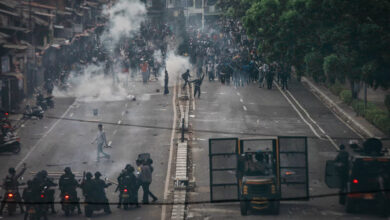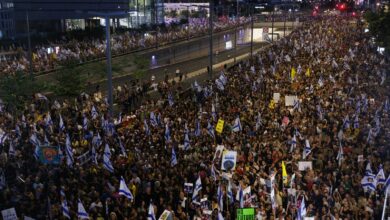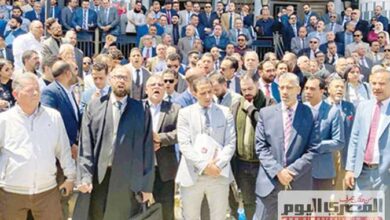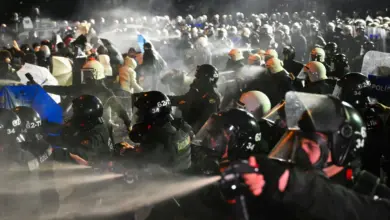Manama, Bahrain — A military force from Saudi Arabia and other Gulf nations moved into Bahrain Monday to shore up the nation's Sunni rulers in the face of escalating Shia-led protests seeking to break the monarchy's hold on power. The force marked the first cross-border military operation to quell unrest since the Arab World's rebellions began in December.
Bahrain's main opposition groups immediately denounced the outside intervention as an "occupation" that pushed the tiny Gulf kingdom dangerously close to a state of war.
The Gulf Sunni dynasties are fearful for their own fate as the Arab push for change rumbles through the oil-rich region. They also see any gains by Bahrain's Shias as a potential foothold for Shia heavyweight Iran to increase influence, including with Saudi Arabia's restive Shia minority in areas just over the causeway from the island of Bahrain.
"The Bahrain government asked us yesterday to look at ways to help them to defuse tension in Bahrain," United Arab Emirates Foreign Minister Abdullah bin Zayed Al-Nahyan said in Paris. He said they sent 500 Emirati police and the Saudis and others also sent forces "to get calm and order in Bahrain."
The strife in Bahrain escalated dramatically over the weekened just as US Defense Secretary Robert Gates arrived to urge its leaders — key Washington allies — to heed at least some of the demands for change.
A Saudi security official said the Gulf units dispatched to Bahrain come from a special force within the six-nation Gulf Cooperation Council. He did not give details on the size or national breakdown of the force — estimated in some reports at about 1000 strong — but said they were deployed by air and road and will help protect key buildings in the strategic nation, which hosts the US Navy's 5th Fleet.
The official spoke on condition of anonymity because he was not authorized to brief media. The GCC members are Bahrain, Saudi Arabia, Kuwait, Qatar, Oman and the United Arab Emirates.
The Gulf Daily News, which is close to Bahrain's rulers, said the outside forces would protect sites such as electricity stations and oil facilities.
The arrival of the military force comes a day after some of the most widespread chaos in the monthlong series of protests and clashes that have left seven dead and the nation deeply divided. On Sunday, protesters blocked the main route to Bahrain's important financial district and battled pro-government mobs at the main university, which has canceled classed indefinitely.
A group of pro-government lawmakers Monday urged Bahrain's king to impose martial law and claimed "extremist movements" were trying to disrupt the country and push it toward sectarian conflict.
A coalition of seven Shia-led opposition factions pledged to demand a UN investigation into the Gulf leaders' decision to send in the special force for an internal conflict. The unit had been deployed in the past to Kuwait, including during the 1991 US-led campaign to drive out Saddam Hussein's troops and before the 2003 invasion of Iraq.
"We consider that any military force or military equipment crossing the boundaries of Bahrain — from air, sea or land — an occupation and a conspiracy against the people of Bahrain," said a statement from the opposition groups.
There was no immediate indication how protesters would respond, nor was there public comment from Bahrain's monarch, but leaders have expressed increasing frustration that opposition groups have not accepted offers to open dialogue aimed at resolving the crisis.
In a series of Twitter messages, Bahrain's prime minister, Sheik Khalifa bin Salman al-Khalifa, lashed out at the Shia-led protesters. "What we are witnessing in Manama is no peaceful protest," he wrote. "It's wanton, gangster style takeover of people's lives."
Shias, who account for 70 percent of the population, have long complained of systematic discrimination by the Sunni dynasty that has ruled for more than two centuries.
The grievances include allegations of being blackballed from key government and security posts. They also strongly object to government policies that give citizenship and jobs to Sunnis from other Arab countries and South Asia as a way to offset the Shias' demographic edge.
The main opposition groups have called for the Sunni rulers to give up most of their powers to the elected parliament. But, as violence has deepened, many protesters now say they want to topple the entire royal family.




